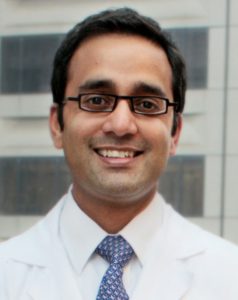
Risk factors such as hypertension, diabetes and smoking conferred greater risk of heart failure in young and middle aged individuals as compared to older individuals, according to a study published in The BMJ.
These findings underscore the need for effective behavioral and pharmaceutical interventions that can blunt these risk factors to prevent heart failure down the line, according to Sanjiv Shah, ’00 MD, the Neil J. Stone, MD, Professor, director of the Center for Deep Phenotyping and Precision Therapeutics at the Institute for Artificial Intelligence in Medicine and co-senior author of the study.
“If we focus on these younger and middle-aged individuals and lessen their obesity, hypertension, diabetes and smoking, we might be able to make a big difference,” said Shah, who is also a professor of Medicine in the Division of Cardiology.
Heart failure is the leading cause of hospitalization for people over the age of 65, part of why it’s typically considered an aging-related disease by clinicians, Shah said. However, the past decade has seen an increasing number of cases in younger and middle-aged people, necessitating a closer examination of risk factors in this population.
In the study, Shah and his collaborators analyzed three large epidemiological cohorts; the Framingham Heart Study (FHS), the Prevention of Renal and Vascular End-stage Disease (PREVEND) study, and the Multi-Ethnic Study of Atherosclerosis (MESA) — of which Northwestern is one of six study sites. The population examined in the current study totaled nearly 25,000 people.
Over a median follow-up of 12.7 years, about one percent of patients under 55, 10 percent of patients aged 55 to 64 and 18 percent of patients 65 and older developed heart failure. Risk factors including hypertension, diabetes, current smoking history and previous myocardial infarction conferred greater relative risk in younger compared with older participants.
For example, hypertension was associated with a threefold increase in risk of future heart failure in young participants, compared with a 1.4-fold risk in elderly participants.
There are limitations to interpreting these results, Shah warned. The impact of risk factors may be somewhat masked in older individuals because hypertension and diabetes are more prevalent among the older population. However, these findings highlight the importance of interventions — such as a new anti-obesity medication studied at Northwestern — that can help mitigate these risk factors in young and middle-aged patients, according to Shah.
“With younger individuals, we have a greater opportunity to intervene and prevent heart failure,” Shah said. “We need to educate patients that they might not only develop obesity or diabetes, but heart failure — which is life-changing.”
This work was partially supported by the National Heart, Lung and Blood Institute (NHLBI).






